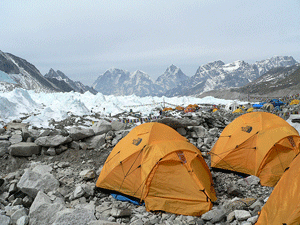While some states have vowed to embrace Arizona’s harsh approach to cracking down on illegal immigrants, others are running in the other direction. In Utah, a coalition of political, business, and religious leaders have joined forces to back a declaration of principles called “the Utah Compact,” which highlights the economic contributions of illegal immigrant workers in the state and emphasizes that immigration enforcement is predominantly a federal issue. Utah’s Republican Attorney’s General, a conservative Utah think-tank, and the Salt Lake Chamber of Commerce are among those that have signed onto the compact. The Mormon Church has also come out in favor of it, and Democrats such as the Salt Lake City mayor have also signed on. The Salt Lake Tribune lays out the agreement’s core principles:
The compact was set up as an immigration policy document designed to reduce angry rhetoric and emphasize empathy and economic contributions made by undocumented workers within the state. The compact declares immigration a federal issue, not one that should be handled by Utah. It also says scarce law enforcement resources should focus on crime, not on civil violations, such as illegal immigration.
The Church of Latter-Day Saints makes the moral case for supporting immigrants:
Though not an official signer of the policy statement, the LDS Church threw its support behind the compact and said it is “consistent with important principles” within the faith….”We recognize an ever-present need to strengthen families,” the statement read in part. “Families are meant to be together. Forced separation of working parents from their children weakens families and damages society.”
Meanwhile, the head of the Salt Lake Chamber, Marty Carpenter, argues that harsh immigration laws could drive crucial contributions to the economy out of the state:
Carpenter said the Salt Lake Chamber has some “serious economic concerns” about policy decisions that put immigrants in a precarious position. “If we have a mass self deportation, if immigrants decide ‘Utah’s not the place I want to be,’ our economy will suffer,” he said. Immigrants pay taxes and shop at Utah stores. While Utah’s economy is on the rebound, he said, “it’s not a decision-proof rebound. This really isn’t the time to mess with the number of consumers.”
Not all Utah conservatives are on board. A GOP state legislator is still planning to introduce an enforcement-heavy bill to combat illegal immigration in Utah, albeit a proposal that’s comparatively less harsh than Arizona’s. But the Utah Compact is a sign that the Bush-era coalition that stood behind immigration reform has a chance of being revived, even at a time when conservative lawmakers are comparing illegal immigrants to rats and livestock. Bush managed to unite the business community, religious leaders, and center-right Republicans behind his immigration plan, which ultimatley failed. Though partisan-fueled gridlock will make it unlikely for those groups to re-unite in Washington, state leaders who’ve been left to deal with the issue will be increasingly compelled to act.







